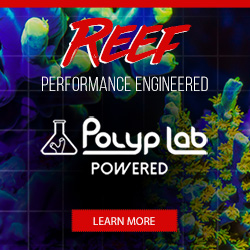
Every few years the reef aquarium may need to be reset. The reasons why can vary. It can be due to any of the following:
- Coral overgrowth due to lack of trimming
- Disease or Pest infestation
- Change in direction of the system due to maintenance, cost, or interest
- Just looking to refresh with new inspiration
My entire system has been running since 2006. It currently has 7 tanks and 3 sumps integrated for an approximate volume of 510 gallons. I am planning to reset the 120 gallon tank for the third time since it was last re-aquascaped in 2017. As simple as this task may sound, this requires a lot of planning and a lot of work. The time frame to accomplish this task is short to minimize stress to the livestock and impacts to the other systems connected to it.
In 2015, I wrote an aquarium automation article series that discussed the 6 P’s of Planning – Prior Proper Planning Prevents Poor Performance. This business lingo from project management can apply to most things in life. In this case, I am planning to refresh my 120 gallon system due to massive coral overgrowth these last 5 years. The goal is to prune and re-aquascape this 120 gallon tank to provide more room for fish and new corals to grow. Tanks seem to have a nice balance of growth from small frags by the 2-3 year mark. Beyond that, colonies need to be consistently pruned to reduce the coral warfare that exists on a daily basis. There is such a thing as “too much of a good thing.”

The last major reset in 2017 to focus on a Montipora, birds nest, and fairy wrasse dominated system.

Current state with healthy but unsightly overgrown corals.
Things to Consider:
- Plan of Attack (before you physically start)
- Define the goal (teardown, refresh, etc.)
- Inventory all livestock in the tank
- If re-aquascaping: a drawing of what you want to keep and where to place each existing coral to meet their lighting and flow needs in the new aquascape
- Are you replacing all the existing live rock? If so, pre-build the aquascape in manageable sizes and pre-cycle the rocks.
- Pre-clean all pumps and equipment before to lighten the load on the main work day
- Dedicate an entire day with no interruptions
- A detailed task list to check off from beginning to end on the main work day
- Sequence of pieces to remove from top to bottom
- What needs to be done for each piece (frag to resize, remove dead coral skeleton, eliminate completely)
- Vacuum all gravel once accessible
- Scrape all glass sides (perform as much prior to the main work day)
- Sequence of pieces to place back into the tank and where to put them
- What to do with all the extra frags/ livestock?
- Resources:
- Temporary live stock storage containers with heaters and water circulation
- Extra fresh saltwater
- Extra help needed?
- Any special tools required? Bone cutters, band saws, hammer and chisels, epoxy and cyanoacrylate glues
- Use an external polishing filter to remove detritus stirred into the water column
- Plenty of towels and buckets
So spend the time to plan and document. It’s always better to estimate all the costs (time, effort, and money) to understand what you are getting yourself into.









0 Comments